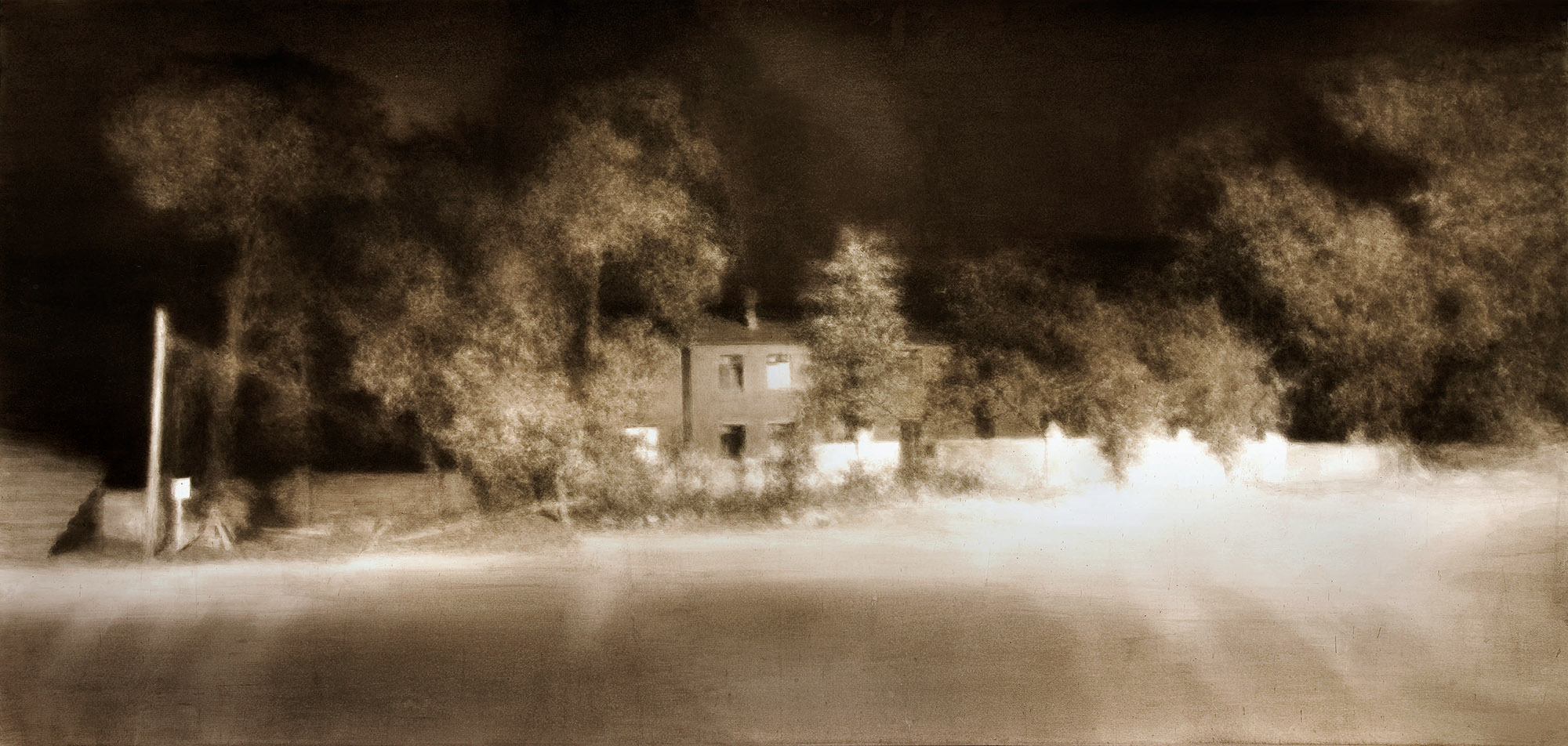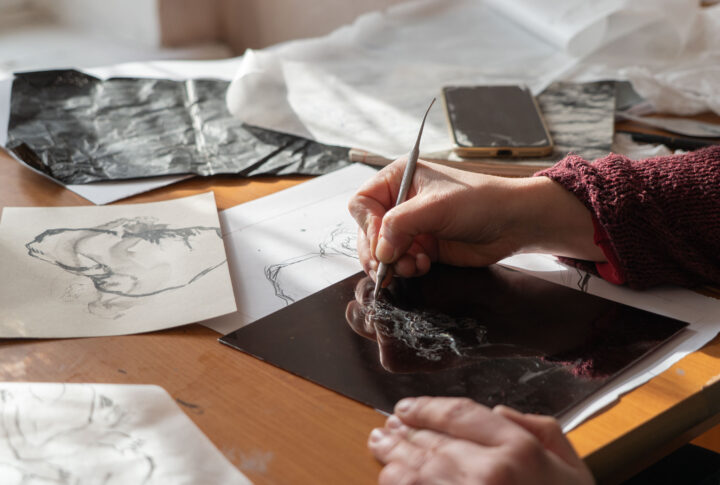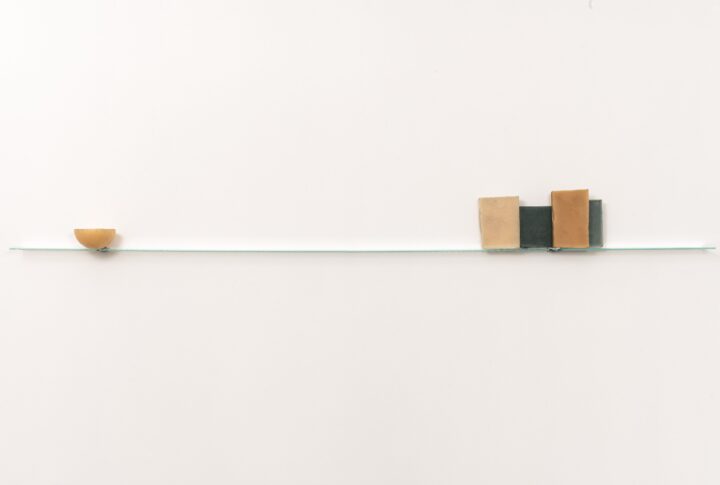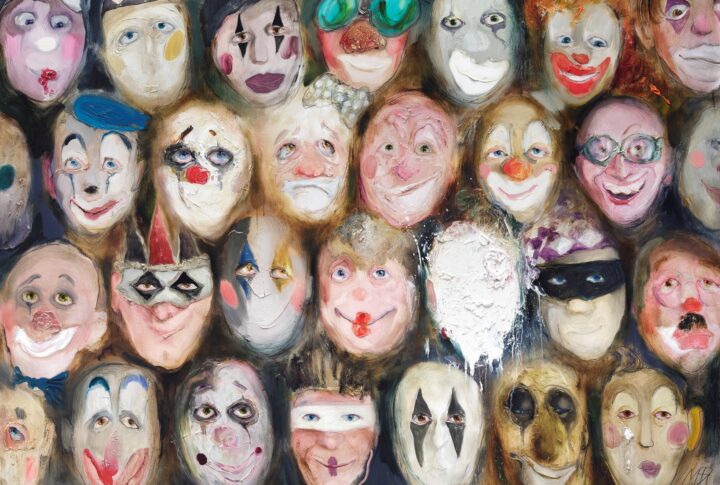Feng Xiaogang: The Light That Illuminates Souls on Kang Haitao’s Art

These days, an artist needs to be extremely strong and steadfast to stick to painting as their primary form of artistic output. Dwelling in a small city away from the hustle and bustle of Beijing and Shanghai and using light as the essential medium to work with, Kang Haitao is undoubtedly such an artist. In this foreword, I would like to share my view and understanding of Haitao, which might slightly differ from that of art critics.
I have been deeply impressed by his Nightscape series: using light as the essential medium and traversing the boundary between the figurative and the abstract, these works have perfectly combined Western composition with Eastern xieyi (写意) [literally means ‘sketching one’s thoughts’, referring to a freehand brush technique that emphasises the spiritual aspect of painting]. Portraying the environment of the artist’s childhood and youth, such as alleys, campuses or valleys under the night sky, the series emanates a familiar and intimate feeling while also carrying a strange and fantastic undertone.
Kang Haitao’s colour technique is similar to that of ‘blazing’ in the Chinese tradition of gongbi [a brush technique that delimits details very precisely, usually considered the opposite of xieyi]. At the same time, he paints like a xieyi master, with ease and style, in an almost monochromatic palette and a few minimalist lines to reduce all superfluities. Kang Haitao has thus created a world filled with poetical images that are obscure and distant, empty yet transcendental, profound as well as isolated. Sometimes, an artist’s complex and mysterious inner world can be very difficult for an outsider to understand. Kang Haitao depicts such an idealised nightscape obviously not for representation, nor simply for exploring painting techniques, but to body forth that lonely soul of himself ‘walking in the night’. With compositions that are simple and peaceful, tones that are moderate and tender, and a style that is sublime and far-reaching, these works have not only voiced the artist’s own solitary and secluded mind but also given expression to the independent and steadfast spiritual pursuit of the current generation of Chinese literati.
Feng Xiaogang
11 May 2022
Feng Xiaogang is a major film director, writer and actor, whose films have won awards in festivals from Cairo to Beijing and have been submitted by China for Best Foreign Language Film at the Academy Awards. His screenwork has pushed the boundaries of Chinese cinema and includes the comic marriage film Cellphone, the historical drama Back to 1942 and I am not Madame Bovary, an internationally award-winning, marvellously comic examination of Chinese bureaucracy through the story of a peasant woman seeking justice against her unfaithful husband.







